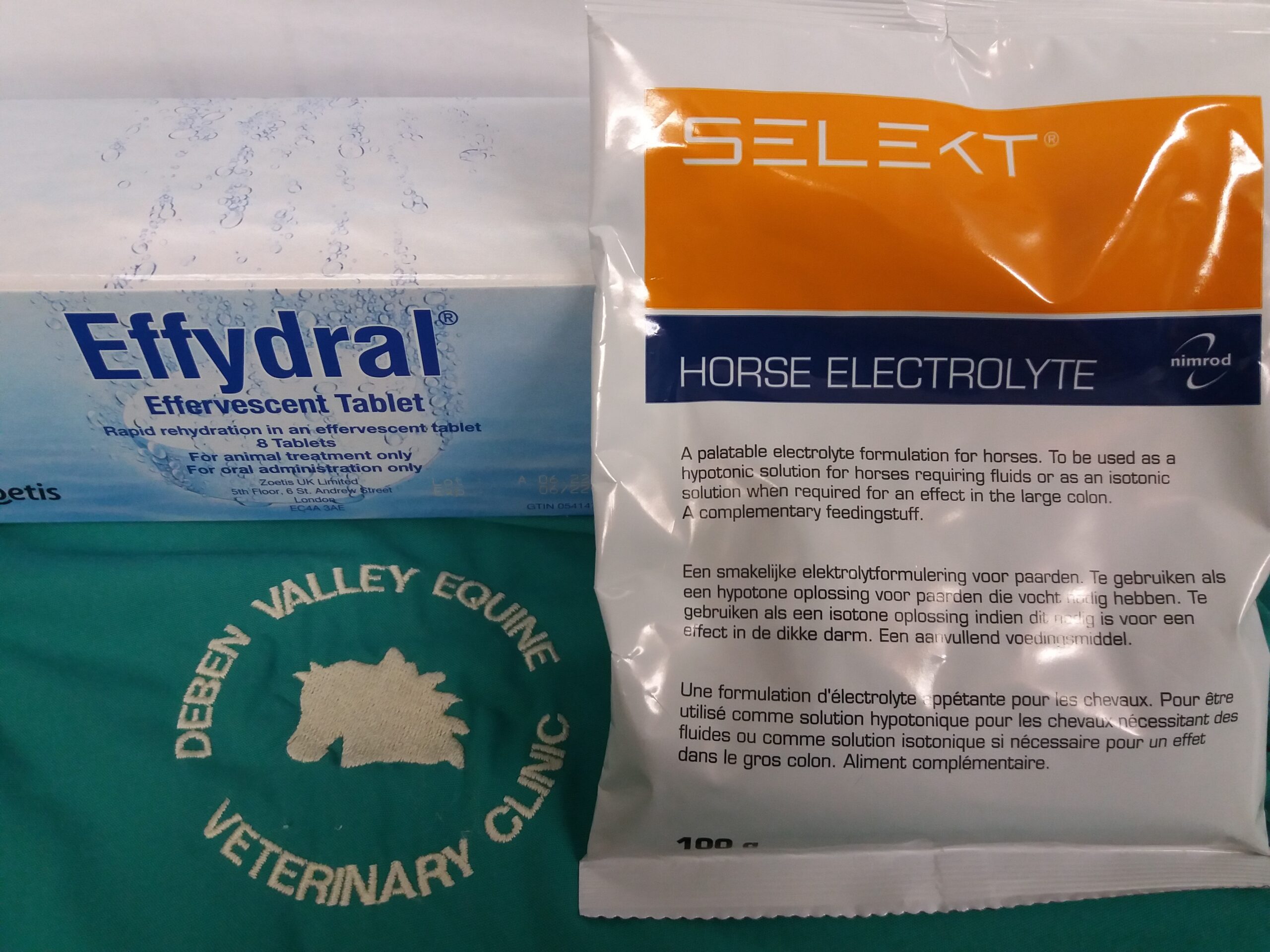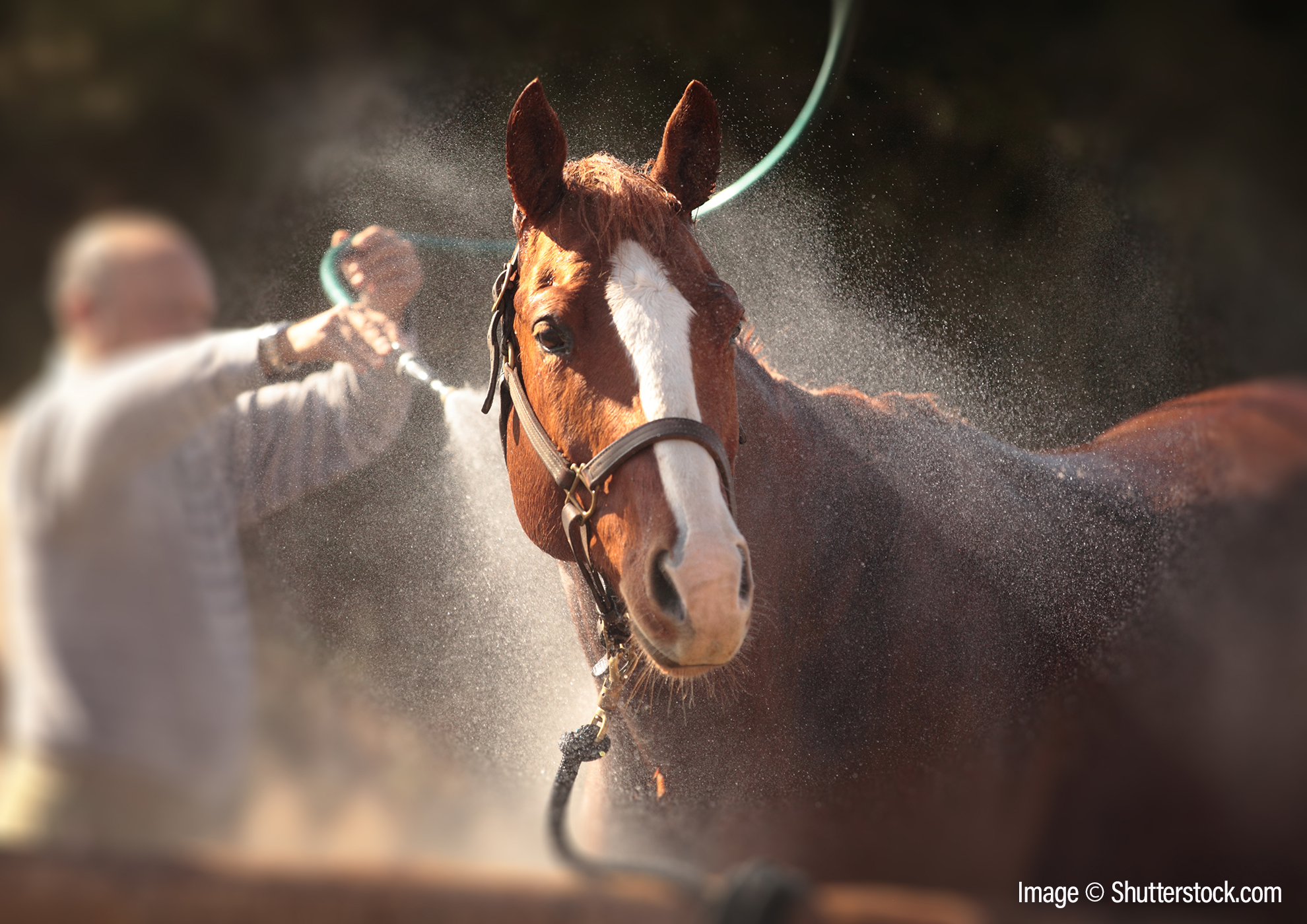Over the last few years, we have seen more extremes in our weather in Suffolk, this can cause havoc for riding ambitions, comfort and training schedules.
Keeping your horse cool:
There are a few simple things you can do to keep your horse cooler; be that after exercise or just because they are struggling in the field or stable.
- Wash them off- and don’t scrape! Completely coat your horse in water- either from the hose or by throwing buckets over them. You’re much better to cover the horse all over. Scraping reduces the cooling effect- you can’t “scrape away” the heat… and the water doesn’t heat up the horse if left on board (just like if you swim in a t-shirt and lie in the sun, your t-shirt keeps you cooler until it’s dry, then you start to heat up- and if you wring the t-shirt out before putting it on you’ll find you dry and heat up quicker!)
- If you are using a rug, make sure it is a breathable, and light coloured, rug! Cotton based sheets are significantly cooler than plastic-y sheets. You do not have to put a cooler on your horse after washing off- remember they are better off wet!
- If your horse is really struggling and has a thick coat such as some native ponies, or elderly horses with diseases such as Cushings, don’t be afraid to clip them– they will feel significantly more comfy with less coat. Cushings (PPID) ponies struggle with body temperature control. Don’t think that your horses coat is actually keeping your horse cool-that simply isn’t true! Arabs and thoroughbreds are thin skinned and thin coated for optimised cooling- as are most hot blooded horses! Your thick coated horses and ponies ancestors are probably from much chillier climates, and much better suited to cooler, wet summers, or Scotland.
- Always ensure your horse has access to shade, be that trees or a shelter, when turned out.
How to exercise your horse:
As always it is important to only exercise you the level of fitness you have, however this becomes even more important when it is very hot. Horses need to get used to working in the heat, and therefore should be introduced slowly to working in full heat and sensible precautions taken. If you are planning to compete in the heat, then your work schedule should reflect this, getting your horse gently used to the heat at home before the competition, rather than carefully riding your horse in the coolest part of the day and then all of a sudden competing at the hottest time. In hot weather, you should also:
- Shorten your warm-up, since muscles will get warmer quicker and your horse will tire more easily
- Offer breaks regularly, allow your horse to drink in these breaks and if necessary cool by covering with water
- Warm down quickly and cool off immediately after completion- get off straight away, remove tack and cover in water.
- If your horse is blowing, start alternate covering with water and walking, until your horse stops blowing
- Allow your horse to drink whenever he wants: before, during and immediately after exercise
Replace loses
Horses, like humans, sweat more when it is hot. Even under normal circumstances, most horses even in moderate to heavy work require some supplementation to replace the essential salts, electrolytes, they lose in work. Most equine diets are deficient in Sodium Chloride (table salt) and this will need supplementing, however when a horse starts to sweat, they lose other essential salts too which also need balancing. These salts are vital to many bodily functions, such as proper muscle contractions, nerve function and gut function.
Therefore horses need essential salts added to their diet. All working horses should receive a maintenance dose, and this should then be increased to help with on-going loses. There is no value in giving one off doses of electrolytes, or only the day before and after a competition or travelling etc- in these cases most of what you give will just be excreted by the kidneys and lost when the horse urinates. It has also been shown that horses will not help themselves to enough salt when it is just provided as a salt lick.
It is vital to always provide normal water, alongside electrolytes.


Poster © drdavidmarlin.com
